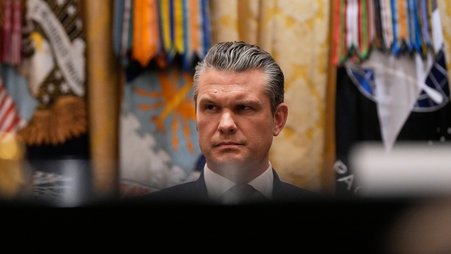Dear Friend of Press Freedom,
Press freedom is under threat, from the steps of the National Archives to the banks of the Mississippi — and it doesn’t stop there. Read the latest below.
Inexcusable censorship in Mississippi
This week a judge granted the city of Clarksdale, Mississippi’s request to order The Clarksdale Press Register to delete an editorial raising questions about transparency within the city’s government. The order blatantly ignores the constitutional prohibition on “prior restraints” censoring the press.
Freedom of the Press Foundation (FPF) Director of Advocacy Seth Stern said in response, “It’s hard to imagine a more unconstitutional order than one compelling a newspaper to take down an editorial critical of the government. And it’s particularly ironic when the editorial in question is about government secrecy undermining the public trust. If anyone previously trusted the secretive officials involved in this censorship campaign, they shouldn’t now.” Read our statement here, and more reporting here and here.
Trump hides migrant detention away at Gitmo
Thanks to dogged reporting, we know that as of last week, the U.S. had sent scores of migrants to its military base at Guantánamo Bay, Cuba, holding some in the same facility as terrorism suspects. Now, the government has abruptly cleared out the migrants held at Gitmo, at least for the time being.
Much remains unknown about the Gitmo migrant operation. As FPF Senior Advocacy Adviser Caitlin Vogus wrote in The Daily Beast, “Sending deportees to Gitmo doesn’t just signal that the Trump administration is cracking down on immigration — it’s cracking down on the public’s right to know, too.”
Journalists: Post public records without paywalls
We’ve all probably had this experience: a news story discusses a government record, but there’s no link to the document to be found.
This used to be a minor annoyance. But the stakes are higher now, as government websites and records disappear, agencies fold haphazardly, lawless oligarchs shield their shady quasi-governmental operations from view, and the future of the National Archives is uncertain.
We called on all news publishers to do what outlets like 404 Media already do: remove paywalls for public records-based reporting or, at the very least, the public records themselves.
Hostile takeover at National Archives erodes our right to know
The Trump administration pushed out the acting archivist for the National Archives and Records Administration earlier this week, temporarily replacing NARA’s professional leadership with Secretary of State Marco Rubio at the helm and Jim Byron, the CEO of the Nixon Foundation, as his senior adviser.
Upheaval at NARA could degrade government recordkeeping and deprive the public of access to our most important records. Our Daniel Ellsberg Chair on Government Secrecy Lauren Harper lists five important questions the public should ask about the Archives.
Five things to know about SecureDrop
Over the past month, FPF has received significant interest in newsrooms setting up SecureDrop, our open source whistleblower submission system. To help newsrooms better understand what makes SecureDrop special and what it takes to operate it, we published a guide highlighting five things to know.
What we’re reading
CBS lawyers say they will seek Donald Trump’s personal financial information if president’s ‘60 Minutes’ lawsuit proceeds to discovery phase (Deadline). It’s mind-boggling that news outlets would even consider settling President Donald Trump’s frivolous lawsuits and pass up a chance to take discovery from a sitting president.
Paramount executives ask: Could they be sued for settling Trump’s $20 billion CBS lawsuit? (The Wall Street Journal). Something’s very wrong when liability risk is what’s stopping news broadcasters from bribing the public officials their journalists cover.
Burying the CIA's Assange secrets (The Dissenter). “Burying secrets so deep and for so long that the public does not find them is typically the CIA’s objective when they invoke the state secrets privilege.”
‘Good luck with that.’ Trump administration terminates privacy officials at agency overseeing government hiring and firing (CNN). We may reach a point where the government not only can’t respond to Freedom of Information Act requests but doesn’t know what records exist or where they are.
Trump called the press ‘the enemy of the people’. Now it’s time to defend ourselves (The Guardian). “If vital media institutions are to survive this administration, it will be because essential media, on all sides, stand up clearly and unequivocally for the right to report the news,” writes Committee to Protect Journalists CEO Jodie Ginsberg.
New declassification task force may be more bark than bite (The Classifieds). Harper’s latest newsletter explains why the House of Representatives’ “task force on the declassification of federal secrets” leaves much to be desired.
Countering persistent threats: Freedom of the Press Foundation’s 2024 Impact Report
We’re excited to share FPF’s 2024 Impact Report, cataloguing our work to defend press freedom and promote transparency. Last year, we made improvements to SecureDrop, recorded the 2,000th incident in the U.S. Press Freedom Tracker, trained thousands of journalists in digital security, and engaged in frontline advocacy defending press freedom. Read the full report for more.





